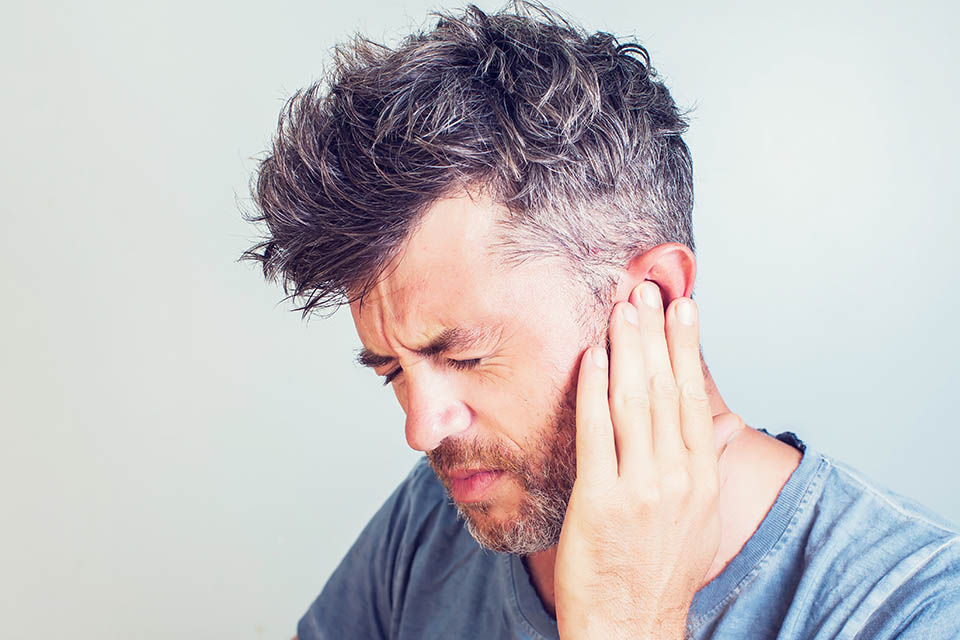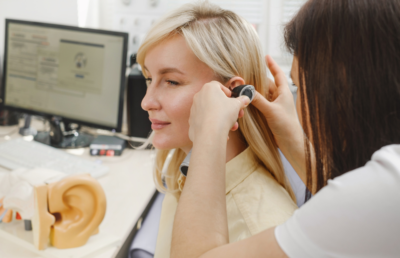Do you find that you have difficulty hearing? A myriad of causes can lead to hearing loss such as age, trauma, viral infections, exposure to loud noise, and more. Depending on the cause, your hearing loss can be temporary or permanent.
Hearing loss is a decrease in your ability to hear or understand speech and sounds around you. It can happen when any part of the ear or the nerves that carry information on sounds to your brain do not work in the normal way. In some cases, hearing loss can be temporary. However, it can become permanent when vital parts of the ear have been damaged beyond repair. Damage to any part of the ear can lead to hearing loss.
Signs and symptoms of hearing loss may include:
- Muffling of speech and other sounds
- Difficulty understanding words, especially against background noise or in a crowd
- Trouble hearing consonants
- Asking others to speak slowly, clearly, and loudly
- Needing to turn up the volume of the television or radio
What causes temporary hearing loss?
Ear infection
Occasionally, a bad cold can turn into an ear infection, which can muffle your hearing. Infection in the middle ear can cause a build-up of fluid, obstructing the movement of the eardrum and the small bones attached to it. While this is most common in children, it can occur at any age. Ear infections typically fix themselves, but it’s always a good idea to see a healthcare professional in case you need antibiotics.
Excessive earwax
Earwax can sometimes build up and block your ear canal. When this happens, you may feel a sensation that your ear is plugged, hear a ringing in your ear, or experience hearing loss. Avoid using sharp objects such as cotton swabs to remove the wax because these can push the wax deeper into your canal and can even perforate your eardrum. If the earwax is not easily removed with a warm washcloth, consult a hearing care professional.
Loud noise
If you’ve been exposed to loud noises, such as a sporting event, a loud concert, or even while operating loud yard equipment, you may experience temporary hearing loss or tinnitus. This type of hearing loss is known as noise-induced hearing loss, which generally appears a few days after the exposure. A continuous noise level of 85 dB will result in hearing damage and either cause permanent or temporary hearing loss. This is the sound level of heavy road traffic. Compressed air hammers have a sound level of about 100 dB and rock concerts almost always reach 110-120 dB. While your hearing will most likely return to normal after a while, it’s important to protect your hearing when you know you’ll be exposed to loud noise to prevent longer-lasting problems. Consider purchasing earplugs or noise-cancelling headphones.
Heavy exercise or stress
No need to worry, normal and healthy exercise doesn’t affect your hearing. However, when you push yourself above your normal fitness level, you may experience temporary loss of hearing. Your hearing should return to normal within a few hours but if symptoms persist, see a healthcare professional as soon as you can. Elevated levels of stress may also cause hearing problems or tinnitus in some cases.
What causes permanent hearing loss?
Prolonged exposure to excessive noise
Just as one-time exposure to loud noise can temporarily affect your hearing, repeated exposures to loud noises can lead to permanent hearing loss. Exposure to loud noise can result in sensorineural hearing loss, which happens when tiny sensory cells in your inner ear get damaged. Sensorineural hearing loss is irreversible, but in some cases, preventable.
Age-related hearing loss
Age-related hearing loss is very common but because hearing fades away gradually, a person with this type of hearing loss may not immediately realize they are losing their hearing. Treating age-related hearing loss is important, as hearing aids can highly improve a person’s quality of life, and even reduce the risk of health conditions like dementia.
Health condition and heredity
A number of health conditions such as genetic disorders, autoimmune conditions like Menière’s disease, trauma to the head, and viral infections such as mumps can also cause hearing loss. Your genetic makeup may make you more susceptible to ear damage from sound or deterioration from aging.
While temporary hearing loss is often mild and gets better on its own — or can be treated with medicine or a simple procedure like removing an earwax build-up — without proper treatment, some forms of hearing impairment can become permanent.
If you experience rapid or sudden hearing loss in one or both ears, seek immediate help from a hearing professional. Other types, such as age-related gradual hearing loss, may be permanent. In these cases, proper treatment can help make the most of the remaining hearing. This may involve using hearing aids or implants. The best way to have peace of mind is to regularly get your hearing tested. This can help you identify any potential problems, prevent bigger issues, and help you get proper treatment if it’s needed.
If you’d like to get your hearing tested, book an appointment today.





